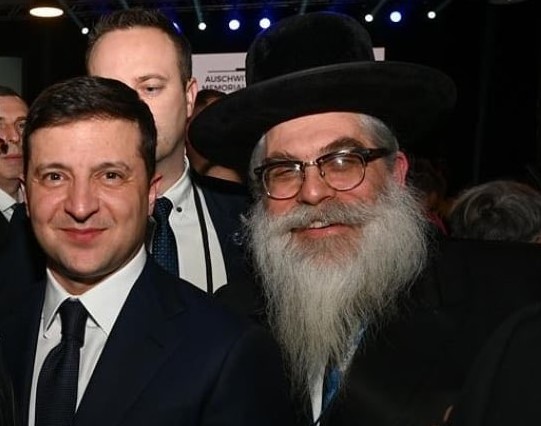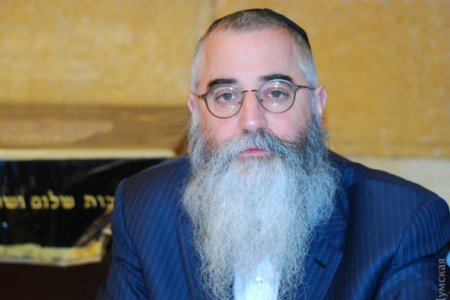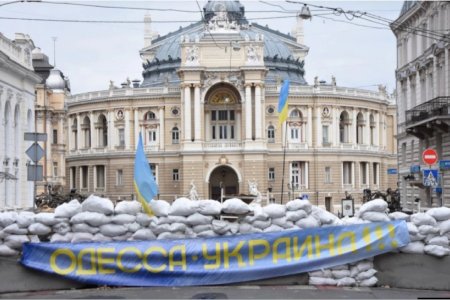
‘The Project’, one of the few independent (and effectively banned) Russian media has published a damning report on the ‘mess’ around Russia’s total war against Ukraine. It describes, among other things, the Kremlin’s retreat from the term ‘denazification’ and the general confusion as to what Russia is trying to achieve. Russian leader Vladimir Putin’s claim on 24 February that Russia’s aims were “the demilitarization and denazification of Ukraine” has aroused outrage in many quarters, including from Holocaust remembrance and education organizations. The Project, however, reports that the Kremlin quietly commissioned a public survey which found that Russians do not understand what is meant by ‘denazification’ and even have problems pronouncing the word.
The Project (Project Media inc.) was outlawed (as ‘an undesirable organization’) last summer. Its Chief Editor Roman Badanin explains that he and colleagues closed down then and created ‘an agency’ for the safety, both of Project authors, and of those who circulated its material, and could also end up prosecuted. Badanin notes, however, that Russia’s invasion of Ukraine and the latest escalation of repression have made such caution senseless. In today’s Russia (and occupied Crimea), you can end up in prison for any truthful material, whether published by a ‘desirable’ or an ‘undesirable’ organization. That does, of course, make it particularly unlikely that their sources would ever be willing to go public.
The article published on 4 May is presented as the first part of an investigation on how “Russia proved unprepared for the war it was preparing for”, and other aspects will be discussed separately.
The authors explain that since Putin’s address on 24 February was prepared in secret, the terms used could not be worked on by specialists, with Russian propagandists left to endlessly reiterate ‘denazification’. They explain that it rapidly became clear that this was an unfortunate term. Around a week after Russia began its full invasion, the Kremlin asked its sociologists to carry out non-public telephone surveys, with these including a question about Russians’ attitude to the main tenets of the propaganda. According to four sources (a high-ranking media manager and a sociologist and political spin doctors close to the Kremlin), the respondents were unable to explain what is meant by ‘denazification’. One of the sources added that people had problems even pronouncing the word.
“As a result, the authorities decided to sharply decrease use of the word ‘denazification’ on the air, but could not totally renounce it – you couldn’t simply forget the objective articulated by the president. “
The authors cite, as an example, Putin’s chief propagandist Dmitry Kiselyov’s weekly program [Vesti nedeli]. During the first episode after the invasion, Kiselyov spent at least seven minutes explaining the meaning of ‘denazification’. During the April broadcasts, he either didn’t mention it at all, or used the terms once per broadcast.
At the end of March 2022, the Financial Times reported that “Russia is no longer requesting Ukraine be ‘denazified’ as part of ceasefire talks” and noted that “three of Russia’s initial core demands — “denazification”, “demilitarisation” and legal protection for the Russian language in Ukraine” were not mentioned.
Russia has long invested money and propaganda effort in pushing the claim that Ukrainians are ‘fascists’ and anti-Semites, with Putin using such labels to justify Russia’s invasion of Crimea and Donbas in 2014. The claims then were roundly rejected by Ukrainian Jewish religious and public figures, so Putin’s attempt to rehash them in 2022 seemed especially cynical (or desperate). If some western commentators were prepared to repeat some of the lies back in 2014, the situation was quite different now. It was clear that Putin’s claims could in no way justify Russia’s barbaric bombing and killing of civilians, nor other widespread war crimes. Outside Russia, they were almost universally understood to be absurd given the minimal support, during democratic elections, for any far-right candidates in Ukraine, as well as the record-breaking majority received in 2019 by President Volodymyr Zelensky who is Jewish, and whose grandfather fought the Nazis throughout World War II.
The Kremlin may have toned down its ‘denazification’ narrative for local consumption and has made it dangerous for anybody in Russia or occupied Crimea to ask inconvenient questions.
It cannot avoid such questions abroad, and Foreign Minister Sergei Lavrov’s response to one such question on 1 May has led to international outrage, especially from Israel. During an interview on Italian TV, Lavrov was asked how Russia can claim that its aim is to ‘denazify’ a country with a democratically-elected Jewish President. Lavrov said he might be wrong, but he thinks Adolf Hitler had Jewish blood, and that “wise Jewish people say that the most ardent anti-Semites are usually Jews”.
Instead of backing down in the face of very strong protest from Israel and from Yad Vashem, Lavrov’s ministry accused his Israeli counterpart of “anti-historical statements” and said that these “largely explain the course of the current Israeli Government support of the neo-Nazi regime in Kyiv.”
Worth noting that even Russia’s Chief Rabbi Berel Lazar, who has, over the last eight years, tolerated all of Russia’s lies, propaganda and aggression against Ukraine, called Lavrov’s words “shocking” and said that it would be good if he apologize.
Lavrov’s words were appalling, and bemusement at claims that a country that has recently had both a Jewish Prime Minister and, now, a Jewish President, is certainly understandable.
There are, however, plenty of other arguments against Russia’s constant attempts to ‘play the anti-Semitism [or neo-Nazi] card’. In early March 2014, Rabbi Yaakov Dov Bleich stated clearly that anti-Semitic incidents in Ukraine are rare, but added just why they were expecting false flag stunts. “We anticipate that the Russians will want to justify their invasion of Ukraine. They are already claiming in the media that Bandera supporters are running about and attacking synagogues, yet none of this is happening. There could be provocation – somebody may dress up as a Ukrainian nationalist and start beating up Jewish people. I am not afraid to draw such an analogy - this is what the Nazis did during the Austrian Anschluss.”
The day after Putin’s address launched Russia’s total invasion of Ukraine, the Chief Rabbi issued a statement affirming the Ukrainian Jewish community’s solidarity with Ukraine’s government and armed forces in defending Ukraine.
In an interview to the Odesa-based publication Dumskaya.net, Rabbi Avraham Wolf, Chief Rabbi of Odesa and Southern Ukraine, has said that the Jewish community in Odesa is a source of envy for his fellow rabbis from other countries.
He says that “Ukraine for a Jewish person is the safest country in the world.” He explains that, even though he has a beard, wears a hat and, what he describes as, Jewish clothing, he walks around Odesa, feeling totally free and safe, and has never once, in all the years he has been in Odesa, encountered hostility towards him because he is Jewish. He says that he does not have such a sense of safety anywhere else in the world, not even in Israel.
Asked if his attitude to Ukraine has changed since the beginning of the war Rabbi Wolf answers: “if previously I loved and respected the Ukrainian people, now, after the beginning of the war, I revere them!. I could never have imagined how strongly people can unite, how full of determination they can be to defend their Motherland."
In just over two months, Russia has already killed two Holocaust survivers: Vanda Obiedkova from Mariupol and Boris Romantschenko from Kharkiv.
On 3 March, three elderly Ukrainians, all survivors of the Nazi invasion of Ukraine and of the Holocaust, were forced to once again take cover, this time from the Russians. From a bomb shelter, with the Ukrainian and Israeli flags by them, they delivered a powerful address to Russian leader Vladimir Putin, telling him to take his army and get the hell out of Ukraine. “We want peace!”
Would the Kremlin call them ‘neo-Nazis’ also?
Moscow’s use of the terms ‘genocide’ and ‘denazification’ has also been condemned by Holocaust organizations. On 28 February, members of the international remembrance committees of Auschwitz, Buchenwald-Dora, Dachau and other Nazi concentration and death camps, issued an appeal, demanding an end to the war. They condemned Moscow’s cynical abuse of Shoah and the memory of its victims in its propaganda.
“As bearers of the memory of the victims of Nazism, the signatories of this appeal denounce the use of the words denazification and genocide to justify the attack on Ukraine. We are legitimate in pointing out the weight of tragedy that they cover. We cannot accept that these words should be so abused.”
On 14 March, the Odesa Regional Association of Former Jewish Ghetto and Concentration Camp Prisoners issued a statement condemning both Russia’s invasion of Ukraine and the false justification used for the invasion by Russia and its leader, Vladimir Putin. The statement, made public by the Association’s Head, Roman Schwarzman, notes that, since 2014, the official Russian Federation propaganda has been pushing, both in Russia and to the international community, a lie claiming that those in power in Ukraine are Nazi collaborators, and not a democratically elected government. This lie is now being used to justify the carnage and destruction inflicted by the Russian Armed Forces on the territory of sovereign Ukraine.
“We members of the Odesa Regional Association of Former Jewish Ghetto and Concentration Camp Prisoners survived through a miracle the fire of the Holocaust and, unlike Vladimir Putin, experienced ourselves the horrors of war. We know what real Nazism is and not that generated by his diseased hallucinations under the influence of his own propagandists.”
On 11 April, 17 Holocaust museums from four countries took out a full-page statement in the New York Times, calling on the world to do more to stop Russian atrocities and war crimes in Ukraine.
“It is with sorrow that we see yet another atrocity in Ukraine, 80 years after the ‘Holocaust by Bullets’ in which Jewish men, women, and children were shot and buried in shallow graves. We are angered by today’s stories of children with their hands zip tied and buried in shallow graves. We are angered by the horrific reports of rape and wanton destruction of lives by the Russian army. These are war crimes, and if we, as the bearers of history, do not speak out, then we have failed in our mission.
We call upon our governments around the world to do more to stop these atrocities and assist those who have been brutalized. We support the International Criminal Court’s investigation of war crimes, crimes against humanity, and genocide.”



